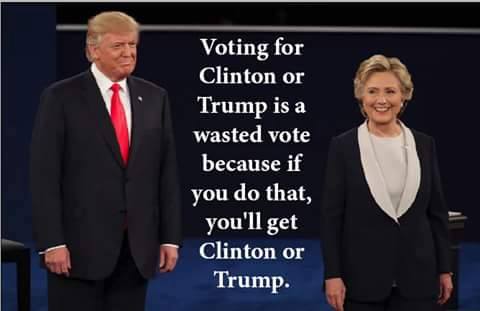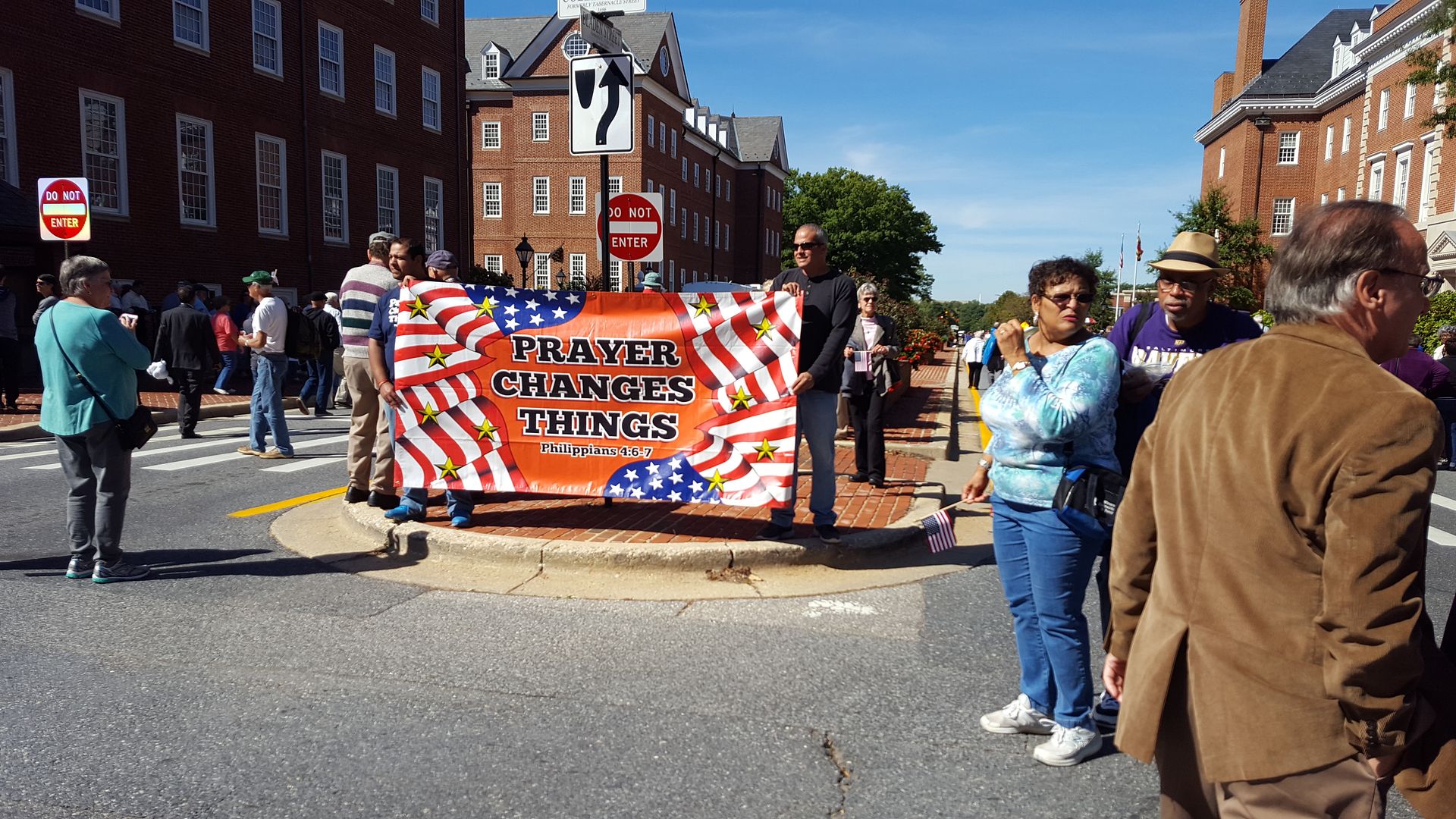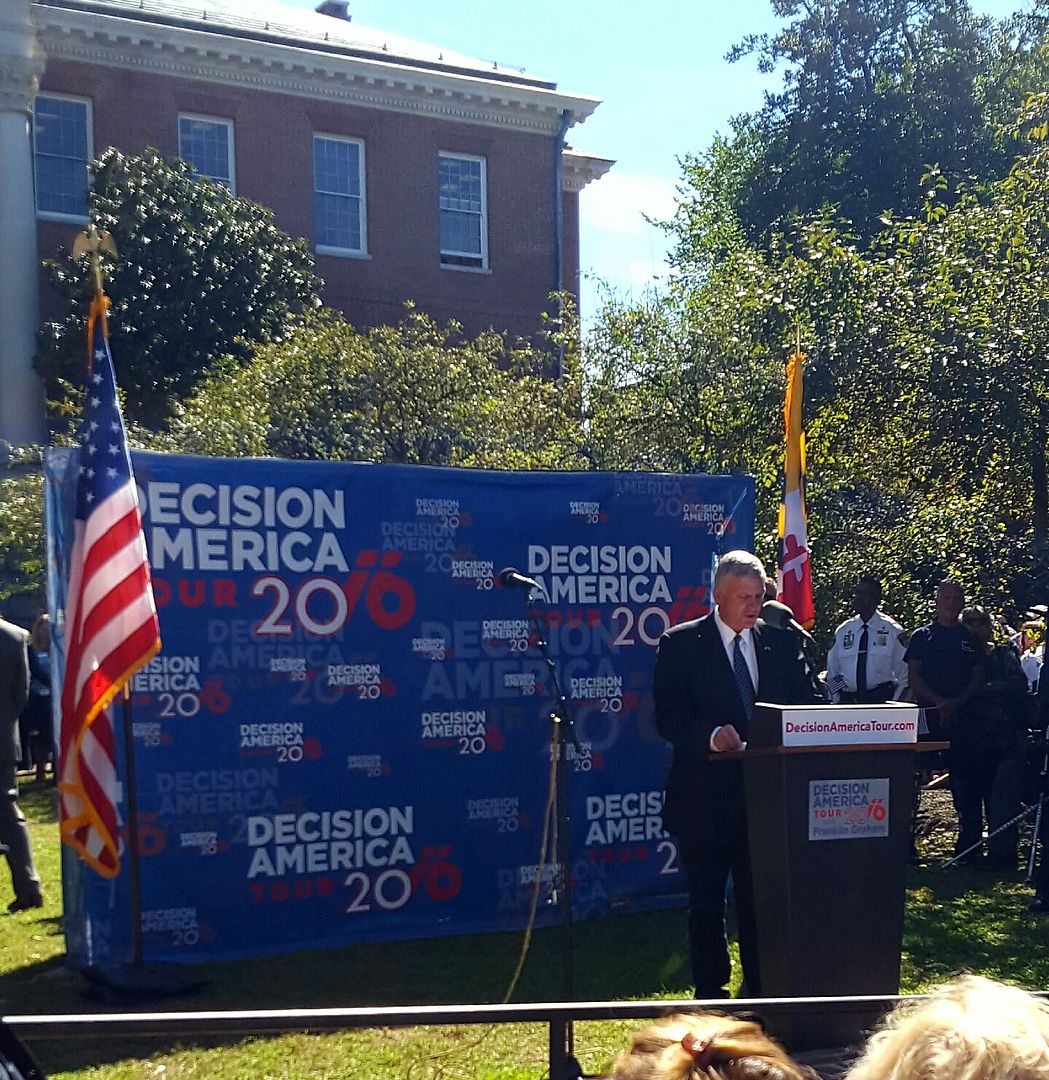The next step in my journey to determining my vote is a discussion of those dreaded social issues; you know, the ones that a group in the Republican Party keep trying to sweep under the rug because they fret about losing moderate voters. Well, if voters are moderate they are most likely going to vote for Democrats anyway because to be moderate is to be unprincipled – and Democrats seem to lack principle except in one instance: acquiring political power at the expense of liberty.
(By the way, if you are joining me here, this is the fourth part of the series. You’d be well-served to work through from the first part. I can wait.)
So here are the parameters I’m looking for, in five or fewer bullet points:
- Abortion should not be the law of the land despite what the Supreme Court says – a proper reading of the Constitution would maintain states retain the right to restrict it as they wish. The next President should work to overturn the incorrectly decided Roe v. Wade decision, which hopefully will be looked at by future generations with the disdain the Dred Scott decision is today. No funding for Planned Parenthood and preservation of the Hyde Amendment. Taxpayers shouldn’t pay for abortions, nor should insurers be compelled to cover them.
- The same goes for so-called same-sex “marriage.” I’m fine with the legality of civil unions, but once again the SCOTUS whiffed on Obergefell. It’s properly a state-level issue, too.
- By the same token, religious conscience should be protected. Just because 2 Timothy 3:12 advises Christians that they will face persecution doesn’t mean we shouldn’t have a President who fights on our side.
- Guys use the guys room, ladies use the ladies. God gave us a particular set of plumbing and that should be the guide. However, I will say that a truly transgender person really isn’t the problem because they have to use a private stall wherever they go – so no one would ever really know. Maybe “don’t ask, don’t tell” should be the guide for that group.
- I don’t have a problem with a state legalizing or decriminalizing marijuana. It’s their right.
This category is worth eight points – not quite to the deal-breaker stage yet, but it may begin to separate the field. And no apologies.
Castle: “Well, I’m a Christian, so I’m opposed to (same-sex ‘marriage.’) I don’t think it exists, because it violates God’s law. But as president, I don’t think it’s any of government’s business. I want to see the government out of the marriage business altogether.”
As for same sex marriage, I have said that I do not believe in it or that it even exists. If I were President and two members of the same sex came to me and said we’re married and here’s a priest, a minister, and a civil magistrate who will attest to that, I would say you are not married because God defines marriage quite clearly in his holy word and you do not meet that definition. However, as President it is irrelevant to me because your relationship is none of my business. It is an abuse of political power to require people to buy a license from the government for permission to engage in whatever relationship they choose. Since there would be no governmental financial advantage to this relationship it is not a governmental concern. (interview with Peter Gemma)
Gender-neutral bathrooms “violate every sense of privacy and decency.”
“Unlike Hillary Clinton who recently said, ‘unborn persons have no constitutional rights’, I know that all ‘persons’ have the right to life and both the 5th and 14th amendments confirm that position. I also know, as does Mrs. Clinton in the deep recesses of her heart, that those waiting in their mother’s womb to be born are in fact persons.
There are many things that a Constitutional President could do about abortion but I will give you a couple.
1. Veto and refuse to spend every penny of funding for Planned Parenthood and other abortion providers.
2. Recommend to Congress, and work to convince Congress, to take away the Supreme Court’s jurisdiction over such matters.”
Would not prosecute mothers who abort child, but would prosecute the abortionists.
Would not tell a baker to bake a cake for a same-sex ceremony if their views conflict. (Iron Sharpens Iron radio show)
Hedges: Those who distribute alcohol/drugs should be responsible for effects on those served (dram shop laws). But don’t prosecute individual drug users. Would allow medical marijuana, although many party members would disagree.
A prohibition on gambling, including state lotteries as they are a regressive tax.
Not all religions should be equally prohibited. ACLU is backward: U.S. is nation of all religions, not no religion.
Family is basis for society.
“I believe all lives matter.” Abortions since 1973 are “absolute travesty.” (VP candidate Bill Bayes)
“We deplore the recent decision of the U.S. Supreme Court on same-sex marriage as an abomination to God. We call for a constitutional amendment, which shall read as follows: ‘Marriage is, historically, an Institution and Sacrament of the Church. Only the Church shall decide what qualifies as a ‘marriage.’ For the purpose of two individuals who need only legal protection, such as for inheritance and for power of attorney one for the other, the state may license Civil Unions.’” (party platform)
Voluntary prayer and other religious activities shall not be prohibited in schools and public spaces. (party platform)
“We consider abortion to be morally repugnant. We will implement policies to minimize the number of abortions without infringing on the doctor/patient relationship and without thrusting government into family decisions about child rearing. Abortion procedures should not be funded by government.” (party platform)
Hoefling: (T)he God-given, unalienable right to life of every innocent person, from biological inception or creation to natural death, be protected everywhere within every state, territory and jurisdiction of the United States of America; that every officer of the judicial, legislative and executive departments, at every level and in every branch, is required to use all lawful means to protect every innocent life within their jurisdictions; and that we will henceforth deem failure to carry out this supreme sworn duty to be cause for removal from public office via impeachment or recall, or by statutory or electoral means, notwithstanding any law passed by any legislative body within the United States, or the decision of any court, or the decree of any executive officer, at any level of governance, to the contrary. (party platform)
We seek the passage of a Federal Marriage Amendment to the U.S. Constitution, and oppose all attempts everywhere to redefine marriage as being anything but what it has always been: the union of one man and one woman. Since the natural family is the basic God-given institution of our civilization, and the nursery of our future, it must be protected from all who would destroy it. (party platform)
Johnson: Protect Religious Freedom. Enforce Common Sense Non-discrimiation Laws.
Gov. Gary Johnson will zealously defend the Constitution of the United States and all of its amendments, including religious freedom. The right to practice one’s religion is a fundamental part of being an American and must be preserved. Johnson personally credits his own religious upbringing as a Lutheran in the definition of his own beliefs and character.
Yet there have been times in our history when religion has been invoked to justify serious harm. In years past, opponents of interracial marriage, desegregation and other efforts to protect civil rights have too often cited scripture and religion in making their arguments.
To be blunt, certain politicians have twisted religious liberty and used it as a tool to discriminate. That’s just wrong, and the overwhelming majority of religious leaders agree.
Gary Johnson believes we can, and must, strike a balance between our shared American values of religious liberty and freedom from discrimination. Today, in some states, politically-driven legislation which claims to promote religious liberty but instead rolls back the legal protections held by LGBT Americans is failing that test of balance.
When it comes to civil rights and the rights of the LGBT community, states are best served when they take an inclusive approach of “fairness to all.”
Conversely, divisive and thinly-veiled legislation clearly aimed at LGBT individuals serves no one, and is not the American way.
One state who “got it right” is Utah. In a compromise worked out among religious leaders, lawmakers and members of the LGBT community, Utah enacted a law making clear that discrimination in employment, housing, and government services is illegal. At the same time, the law granted common sense protections to insure that the legitimate First Amendment rights of individuals and religious organizations cannot be put at risk.
In short, Utah found a way to protect religious freedom without creating a “right to discriminate”.
America is big enough to accommodate differences of opinion and practice in religious and social beliefs. As a nation and as a society, we must reject discrimination, forcefully and without asterisks while at the same time we must protect our important religious freedoms. (campaign website)
Appreciate Life. Respect Choice. Stay Out of Personal Decisions.
Gary Johnson has the utmost respect for the deeply-held convictions of those on both sides of the abortion issue. It is an intensely personal question, and one that government is ill-equipped to answer.
On a personal level, Gary Johnson believes in the sanctity of the life of the unborn. As Governor, he supported efforts to ban late-term abortions.
However, Gov. Johnson recognizes that the right of a woman to choose is the law of the land, and has been for several decades. That right must be respected and despite his personal aversion to abortion, he believes that such a very personal and individual decision is best left to women and families, not the government. He feels that each woman must be allowed to make decisions about her own health and well-being and that the government should not be in the business of second guessing these difficult decisions.
Gov. Johnson feels strongly that women seeking to exercise their legal right must not be subjected to prosecution or denied access to health services by politicians in Washington, or anywhere else. (campaign website)
Save money. Change lives. Protect families.
The Federal government should not stand in the way of states that choose to legalize marijuana. Governors Johnson and Weld would remove cannabis from Schedule I of the federal Controlled Substances Act, which will allow individual states to make their own decisions about both recreational and medical marijuana — just as they have done for decades with alcohol. Eliminating the Federal government as an obstacle to state legalization decisions is not only constitutionally sound, but would allow much-needed testing of marijuana for medical purposes, as well as regulation that reflects individual states’ values and needs.
The health benefits of cannabis in pain treatment has already proven to be safer and less addictive than current pain medications such as opioids. Pharmaceutical companies need to be allowed to conduct medical testing on cannabis. This is better for all Americans. A President that is not afraid to tackle the tough issues would understand that de-scheduling cannabis and allowing medical research is the right thing to do.
The marijuana black market has created a non-stop crime epidemic. Thousands of lives are lost each year in trafficking along the Mexican boarder alone. The War on Drugs has been an expensive failure. We spend money to police it. We spend money to incarcerate nonviolent offenders. And what do we get in return? A society that kicks our troubled mothers, fathers, and young adults while they’re down, instead of giving them the tools to be healthier and more productive members of society. Crime and wasted lives has produced a circle of failure….and it needs to stop.
We can save thousands of lives and billions of dollars by simply changing our approach to drug abuse. That is why Gary Johnson came out as an early proponent on the national stage in 1999 while Governor of New Mexico, and publicly stated his support of marijuana legalization.
Governors Johnson and Weld do not support the legalization of other recreational drugs that are currently illegal. It is, however, their belief that drug rehabilitation and harm-reduction programs result in a more productive society than incarceration and arrests for drug use. (campaign website)
This is why Gary Johnson embraced marriage equality before many current Democratic leaders joined the parade. He was also the highest ranking official to call for an end to the drug war and start treating drug abuse like a disease instead of a crime.
His vice presidential running mate, Governor Bill Weld, was not only an early proponent of civil rights for gays and lesbians, he actually appointed the judge who wrote the opinion that established marriage equality as a matter of constitutional right. He is also an outspoken defender of a woman’s right to choose, rather than allow the government to make such an important and personal decision for them.
Unlike Governors Johnson and Weld, those in power today are steadily eroding the personal freedoms that our government was established to protect.
Gary Johnson believes that people, not politicians, should make choices in their personal lives. Responsible adults should be free to marry whom they want, arm themselves if they want, and lead their personal lives as they see fit — as long as they aren’t harming anyone else in doing so. (campaign website)
McMullin: Our respect for life is the most important measure of our humanity. From conception to death – and any time in between – life is precious and we have a responsibility to protect it. A culture that subsidizes abortion on demand runs counter to the fundamental American belief in the potential of every person – it undermines the dignity of mother and child alike. Americans can and should work together to increase support and resources to reduce unintended pregnancies and encourage adoption, even if they may have different opinions on abortion rights.
Religious liberty is freedom of conscience, inherently connected to actions and expression; it’s the grace to let others pursue their convictions and the willingness to welcome a marketplace of diverse ideas. This freedom is central to the American experiment, and it should be protected, not disparaged. At a time when global religious persecution is at record highs, America must prioritize the defense of this core human right in our diplomatic efforts. Our moral authority to defend religious freedom abroad relies on the vitality of religious freedom here at home. Our government should not target religious groups for discrimination or marginalization based on the obligations of their faith, but instead recognize that religious diversity and robust pluralism are foundational sources of strength for our nation. (campaign website)
Evan McMullin told Mark Halperin he is personally opposed to redefining marriage but that he would do nothing to reverse the Supreme Court’s ruling on the Bloomberg News webcast, “With All Due Respect.”
“As a member of the Church of Jesus Christ of Latter-Day Saints, I believe in traditional marriage between a man and a woman, but I respect the decision of the Court, and I think it’s time to move on,” McMullin said, echoing moderate Republican presidential hopefuls.
When pressed, McMullin said he would have “ideally” liked to see the issue decided by the states, “but it’s been handled by the Supreme Court, and that’s where it is.”
McMullin said he bases his definition of marriage on his Mormon faith, but “my faith isn’t everybody else’s faith. I make my decisions for me [based] on those kinds of things.”
When Halperin asked if a President McMullin would appoint Supreme Court justices who would overturn the case nullifying state marriage protection laws nationwide, Obergefell v. Hodges, he replied, “I wouldn’t.” (LifeSite News)
**********
I like Darrell Castle‘s thought process, as he posits an argument that has merit when it comes to marriage as a whole, because it is a legitimate option states could take if they so chose. He’s also very sound on the abortion issue since indeed Congress could remove that area of jurisdiction – in fact, they could very easily rein in the SCOTUS if they had the desire to do so. Overall he does extremely well in this category. 7 points.
Jim Hedges is a little weak on abortion, but on the other hand he gives the other legitimate counter-argument with regard to marriage: since it would take 38 states to ratify a Federal Marriage Amendment, it would occur in a situation where the vast majority of states were already on board. I’m not sure a federal ban on gambling would be enforceable, but I could see this as being a benefit overall since lotteries are indeed regressive taxes. I also agree with him on voluntary prayer. 6 points.
I appreciate Tom Hoefling‘s passion for life. But I’m curious how all that shakes out with the rule of law as it currently exists. Indeed, as an inalienable right life comes before liberty for a reason – for without life there is no liberty. Yet this nation lives under a Constitution that prohibits “notwithstanding any law passed…to the contrary.” It makes me question where he feels the extent of his executive power would lie, and that is troubling too. I don’t want to trade one Trump (or Obama) for another, no matter how well-intentioned. 3 points.
When a woman’s liberty is deemed to trump the unborn’s right to life, that is a non-starter with me. But Gary Johnson goes there. Johnson also cites Utah’s anti-discrimination law as a model to follow, even though the head of Equality Utah noted the law Johnson cites has, “among the broadest religious exemptions in the country, and you would never want to cut and paste (their law.)” He called the bill “a milestone for Utah, but not a model for the country.” So it wasn’t the grand compromise Johnson makes it out to be.
Johnson and Weld seem to turn their back on Judeo-Christian values in the name of liberty – but I contend America needs the guardrails for its system of government is intended “only for a moral and religious people.” Only because they are relatively permissive on marijuana do they score at all here. 1 point.
Evan McMullin may be a decent and pious man, but in his statement he shows that he does not have the gumption to stand up for what is right. Whether it’s in the name of “pragmatic” political expediency or the belief that people need to be left alone and to “move on,” he forgoes the use of his bully pulpit at a time when it’s more necessary than ever. Shameful. No points.
It is on that sour note that I inform you the next part will deal with pocketbook issues, specifically trade and job creation.



 From San Diego by way of a global upbringing, musician Christopher Sluka (who simply uses his last name professionally) shows off his talent as a musician and songwriter on this DIY effort. The album came out in January, but there’s a renewed interest in the music as Sluka is trying to put together videos for all thirteen tracks as a BluRay release prior to a European club tour beginning next month.
From San Diego by way of a global upbringing, musician Christopher Sluka (who simply uses his last name professionally) shows off his talent as a musician and songwriter on this DIY effort. The album came out in January, but there’s a renewed interest in the music as Sluka is trying to put together videos for all thirteen tracks as a BluRay release prior to a European club tour beginning next month.





